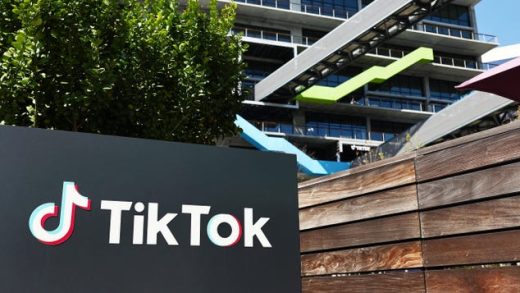To get a roundup of TechCrunch’s biggest and most important stories delivered to your inbox every day at 3 p.m. PDT, subscribe here.
Hello and welcome to Daily Crunch for October 12, 2021. So far Q4 is cracking good fun. We’ve got IPO filings aplenty and, as you will see below, more startup news than you can shake a stick at. Heck, Apple has another event coming. So much for a fourth-quarter slowdown, yeah? – Alex
The TechCrunch Top 3
- Coinbase gets in on the NFT game: Early crypto-marketplace pioneer Coinbase is following smaller rivals into the non-fungible token (NFT) game. NFTs have seen their popularity rise in recent months as speculation concerning blockchain-specific ownership signatures for digital images has spiked. Folks are hype for JPGs, as they say, and Coinbase, which generates the vast bulk of its revenues from transactions, doesn’t want OpenSea to win the NFT market. Ironically, Coinbase was famously backed by a16z, which is also an investor in OpenSea. That’s spicy.
- The unicorn traffic jam is only getting gnarlier: New data concerning the Q3 venture capital market makes it clear that there’s more capital than ever pouring into global startups. One result of the financial deluge is that more unicorns are being born than ever. And that’s leading to an ever-longer jam of yet-private unicorns in need of eventual exits. TechCrunch dug into what could go wrong.
- Soon all blogs will be newsletters: The success of Substack in creating a better-known paid-newsletter economy continues to attract rivals. This time it’s Memberful, a Patreon product. In contrast to Substack, Memberful will take a smaller cut of writer revenues, which will balance out with a flat-fee structure. For folks with a following, the savings could add up.
Startups/VC
Our leading startup story today is news that Indian neobank Open has raised new capital, partially from Google. Any large market with rising digital penetration and a population that isn’t fully banked will be fertile ground for neobanking startups. India appears to be one such market, if recent fundraising results from Open are any indicator. It just put away $100 million at a $500 million valuation, per TechCrunch reporting. Temasek led the round, which also included funds from Google and Tiger.
- Privateer wants to locate space trash: Incidentally, “space trash” is also my favorite genre of novel. Regardless, Privateer wants to help locate and map garbage in orbit around the planet. That there’s too much crap flying around the planet is a known fact. Precisely where that detritus is at any given point, however, is less clear.
- Big bucks for AI chips: The global silicon market may be a hot mess at the moment, but Hailo is not letting that bum it out. The AI-focused chip company just raised $136 million at a valuation that TechCrunch reports is around the $1 billion mark. Different computing workloads perform better on different chip designs, in case you were curious why Intel isn’t crushing the global AI chip market. Just don’t expect the global chip shortage to be over any time soon.
- Atomic is building payroll APIs: The banking-as-a-service world is hot, and startups are diving into new areas of the financial market to bring more and more of it into the modern era. Atomic is one such startup. Its product helps consumers link their income streams to different services and verify both their employment and pay data.
- SoWork is betting that virtual co-working is here to stay: Tired of working from home, alone? SoWork thinks you might be. The virtual co-working startup just raised $15 million. How you feel about virtual hangs may depend a bit on how comfortable you are on long-form audio calls — gamers are already accustomed to this — but it’s neat to see companies like SoWork raise even as some companies begin a slow march back to offices.
- MentalHappy wants to take on mental health with targeted groups: Even if you have insurance, getting a therapist is about as much fun as arguing with your insurance company. Perhaps because it often involves precisely that. MentalHappy is a startup that isn’t setting out to solve the therapist shortage — or the high cost of therapy. Instead, for a low monthly fee, it offers peer support groups. Frankly, I dig it.
- EngFlow wants to speed up application compiling: Look, this comic wouldn’t exist if compiling code didn’t take a minute. Sadly, EngFlow wants to delete the engineer equivalent of a smoke break by cutting down on compilation lag. And it just raised a few million bucks for its efforts.
- Plume’s mesh Wi-FI service raises $300M: Here’s a company that we should have probably noted before today. Plume is “a communications startup that partners with carriers to provide smart mesh Wi-Fi to improve broadband connectivity in homes, and then offers other smart home services on top of that network,” per TechCrunch. And it is now worth some $2.6 billion. Who knew!
- And, finally, Canva is getting into video.
Selling into the enterprise: How Slack and other startups get it wrong
Going up against large enterprise companies may be daunting for a startup, but Scribe CEO and co-founder Jennifer Smith says you’re never too small to start.
Much to their detriment, many early-stage companies wait too long to spin up strategies for competing with industry leaders, she writes. One example: Twelve years after its founding, Slack exited to Salesforce for $27.2 billion.
“The question is, if Slack had considered selling into the enterprise sooner, could it have survived as an independent public company?”
(TechCrunch+ is our membership program, which helps founders and startup teams get ahead. You can sign up here.)
Big Tech Inc.
- Google flips the script, demands cash from Epic: As gaming company Epic takes on both Google and Apple in court, it’s showing just how long a road may be ahead of companies looking to break the status quo in operating-system-locked application marketplaces. Apple is appealing one modest ruling, and Google is now demanding financial relief from the Fortnite maker.
- A TechCrunch guest post dug into the UI of Apple Fitness+, which I quite enjoyed.
- Twitter is launching an audio accelerator for its Clubhouse-competing Spaces product: Here at TechCrunch, we honestly like Twitter Spaces because they are easy to spin up and reside where we already spend too much time. It will be notable to see which service can attract and retain the most in-demand talent over time.
TechCrunch Experts
Image Credits: SEAN GLADWELL / Getty Images
We recently added another vertical to the Experts project! If you have a software consultant that you think other startup founders should know about, fill out the survey here.
Read one of the testimonials we’ve received below!
Consultant: Arbisoft
Recommended by: Omri Traub, CEO of Popcart
Testimonial: “We were able to create a high-performance dev team that includes dev, QA and DevOps. We had access to top talent and, importantly, elasticity in hiring. If we wanted to add a developer, we could have an incredible one join our team in under one week. It would have taken us weeks and months to recruit and hire a developer in Boston or the U.S.”
Community

Image Credits: Simon & Schuster, Inc.
Join Danny Crichton on Thursday, October 14, at 2 p.m. PDT/5 p.m. EDT for a Twitter Spaces interview with Jacob Helberg, author of “The Wires of War,” which will be released tomorrow.
Source : Daily Crunch: Bangalore-based, SME-focused neobank Open raises $100M Series C













